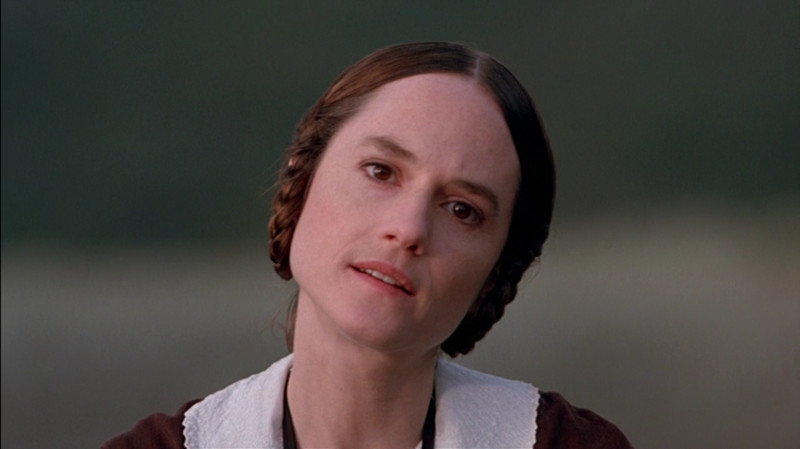
Jane Campion has been a household name for such a long time that it’s easy to take for granted just how spectacularly rare her success really is.
If even now female directors still struggle to get their movies made, let alone have them find the same level of attention dedicated to them as the work of their male counterparts, then when Campion started, in the late 80s, the issue of diversity behind the screen was essentially a non-starter, making the acclaim she found a radical outlier in the cinematic landscape.
But as powerfully symbolic a feminist figure as she was and continues to be (as of this year, the only woman ever to be nominated twice for the Best Director Oscar), describing Campion and her success simply through the prism of gender is actually a disservice – it obfuscates her massive talent and makes her considerable artistic contribution to cinema seem secondary to the social and political advances she represents.
So, with that in mind, and Campion poised to make history in the Academy Awards once again, it seems the perfect time to celebrate her wonderful career and honor a tremendous talent – so here’s a ranking of every single one of her (theatrically released) features.
8. Holy Smoke (1999)
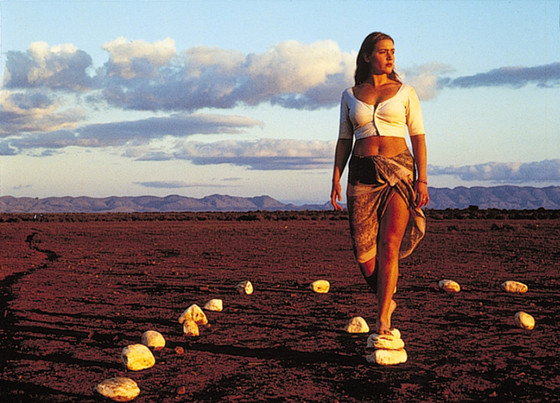
For most filmmakers, becoming an Oscar winner is a key career breakthrough, opening doors for bigger budgets and greater creative freedom, fostering the perfect set of circumstances for the creation of great art – there are many directors who make some of their best movies thanks to prestige bestowed by the Academy Awards.
Curiously, for Jane Campion, the exact opposite happened; following her hit award darling “The Piano,” for which she won an Original Screenplay Oscar, she made her two weakest films, the worst of which is the bizarre “Holy Smoke.” But perhaps it’s unfair to use the word “worst” to refer to this film since it implies something with no redeeming qualities, which is not the case – if nothing else, one needs to respect Campion’s thematic ambition and her commitment to making a film that exists on a unique wavelength; which is more or less what she has always done.
In fact, “Holy Smoke” is in various ways a classically Campion film; filled to the brim with hefty ideas about sexism, power dynamics and gender relations; all delivered via formal experimentation. Unfortunately, it’s also a huge mess: narratively unfocused, tonally schizophrenic, visually grating (Campion puts a yellow/orange hue over everything to demonstrate the heat of Australia, in a rare, obvious choice for her) and edited in a bizarre way.
7. The Portrait Of A Lady (1996)
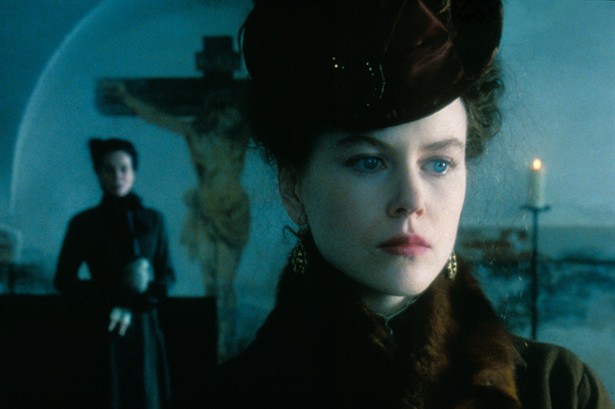
Campion’s direct follow up to “The Piano” came with just about every signifier of prestige filmmaking imaginable: “The Portrait Of A Lady” is a period piece, based on a classic novel by a canonical writer, dealing with issues of patriarchal oppression and starring a great actress then at the height of her popularity and acclaim.
The fact that all these ingredients failed to garner the same Oscar success she previously enjoyed is a testament both to Campion’s ambition and artistry as a filmmaker, but also of the limitations of this specific film. “The Portrait Of A Lady” was never going to be the kind of swooning period romance that awards bodies go for. There’s little here of that vapid good taste, of the oversimplified and superficial sentimentality that is tailor-made for the Merchant-Ivory crowd – Campion’s film is far thornier and less accessible, not exactly the melodrama one would expect, but an understated character study.
But the film is also, nonetheless, just as soporific as the worst of period melodramas, with a threadbare story stretched out over two and a half hours, tediously underplaying just about every dramatic beat – which works to distinguish “The Portrait Of A Lady” from other movies of it’s kind, but doesn’t do much to make it any better.
6. An Angel At My Table (1990)
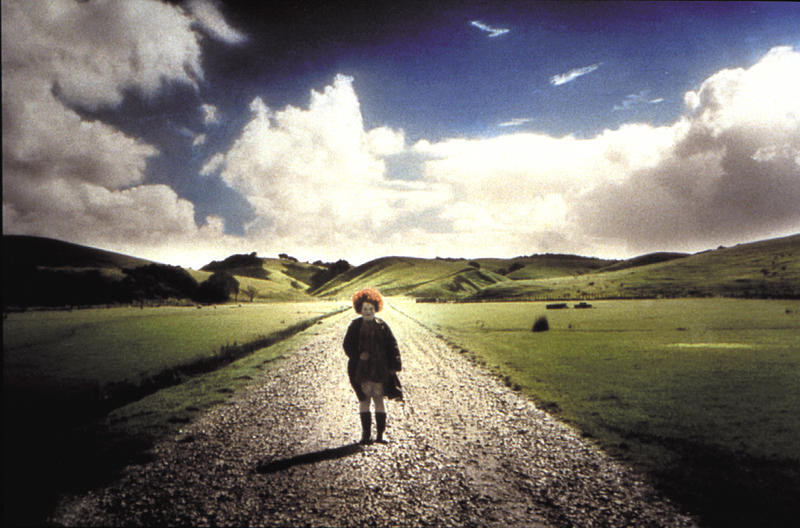
With some very few and notable exceptions, biopics tend to be the most creatively insipid and uninspired of all film genres; reducing a notable person’s life to a wikipedia-esque series of bullet points, often veering into outright hagiographic territory.
Most crucially, biopics in general tend to focus on the concrete aspects of its subjects life, meaning, their actions and impact on the world, overlooking their inner life, which, ultimately, is the key to understanding any person. It is in that way, especially, that Campion’s “An Angel At My Table” is such a fresh and distinct take on this most tired formula; based on the autobiographical work of New Zealand writer Janet Frame, the film is chiefly preoccupied with her struggles with mental illness and the inner turmoil brought by personal tragedies.
Biopics, by definition, tend to focus on people who have done extraordinary things, whose existences completely escape the ordinary – it’s much rarer, and more difficult, for a film to chronicle the life of a largely ordinary person and still find beauty in the mundane. And yet, somehow Campion does it effortlessly in “An Angel At My Table,” a supremely sensitive, funny, honest and heartbreaking film that honors its subject’s rich soul.
5. Sweetie (1989)
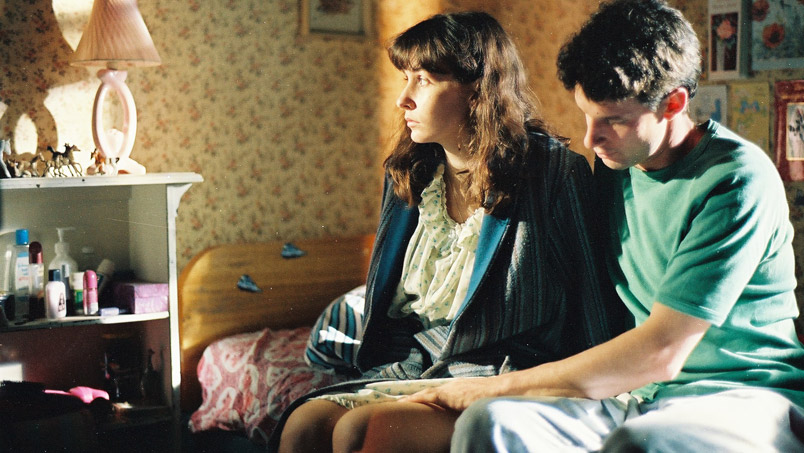
The late 80s/early 90s were an incredible time for iconic directorial debuts, such as “Blood Simple” or “Reservoir Dogs” – big screen calling cards that both preface their respective director’s brilliant careers and are incredible individual films unto themselves.
It’s understandable that Campion’s own debut (cinematic, anyway, for she had previously directed the TV film “Two Friends”) doesn’t get mentioned in the same breath as these classics, since it lacks their pop appeal and high-stakes thrills – but “Sweetie” is an equally remarkable introduction to a major voice. Formally, Campion was just as supernaturally gifted as those other male superstars: the film is full of tremendous images; her sense of composition was brilliant from day one; always finding the most interesting angle possible, framing subjects in a just slightly off way, communicating their emotional discomfort – pure, effortless visual storytelling that is also aesthetically sophisticated.
Narratively, “Sweetie” is also a microcosm of the tone and themes Campion would come to explore for the rest of her career, dealing with female sexuality, familial bonds and the overwhelming alienation that comes from not fitting in, told in a tragicomical register that makes the bitter pill easy to swallow.